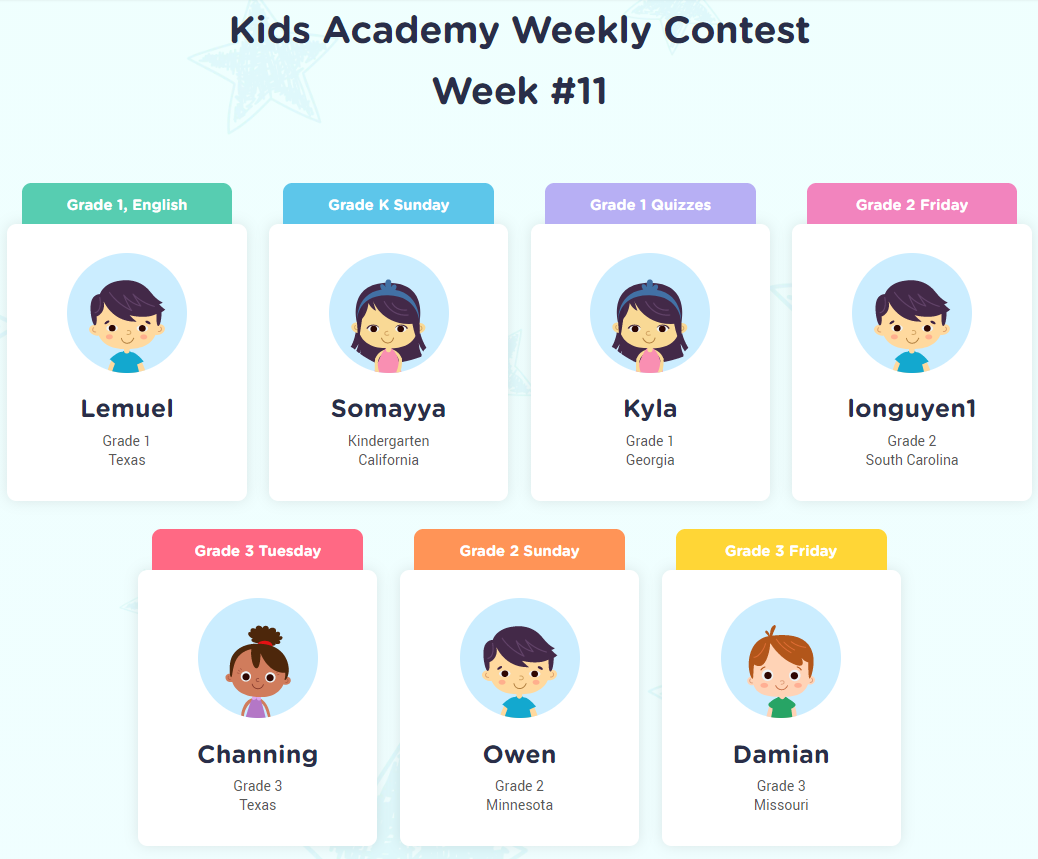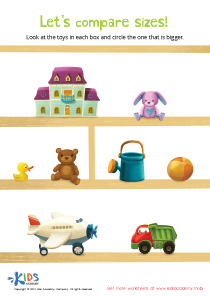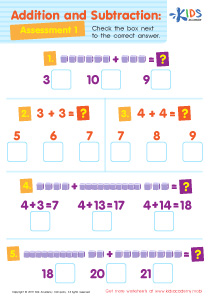Mental math skills Extra Challenge Math Worksheets for Ages 6-9
7 filtered results
Difficulty Level
Grade
Age
-
From - To
Subject
Activity
Standards
Favorites
With answer key
Interactive
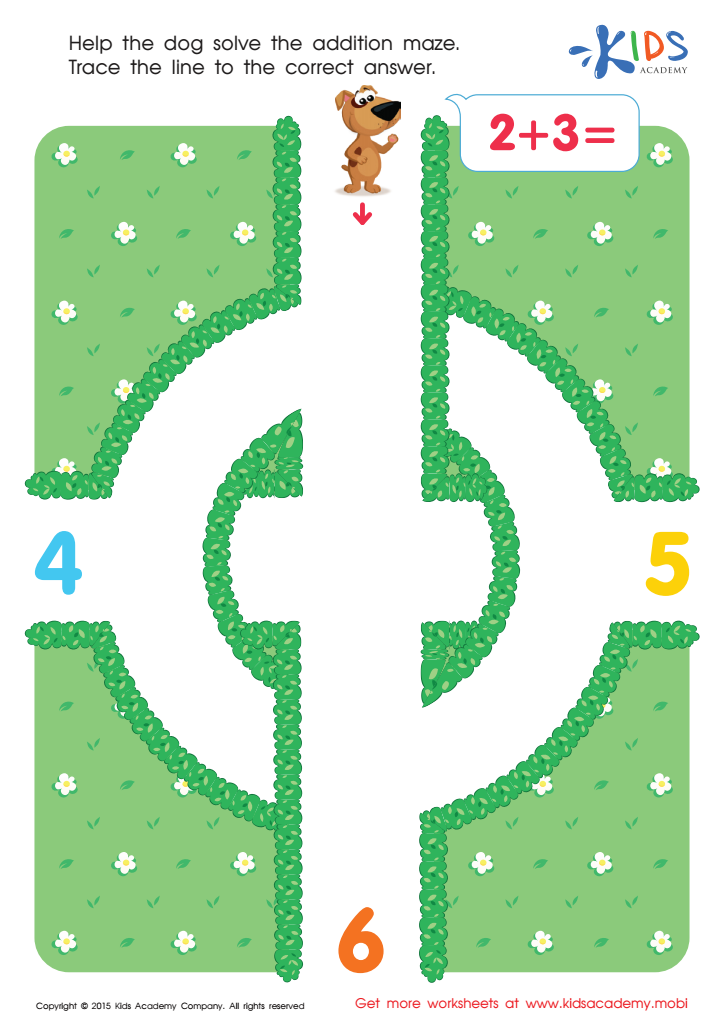

Two And Three Addition Worksheet
Give your children the task and let them find the path to the right answer while they make their way through the maze, and don't forget to let them trace the path.
Two And Three Addition Worksheet
Worksheet
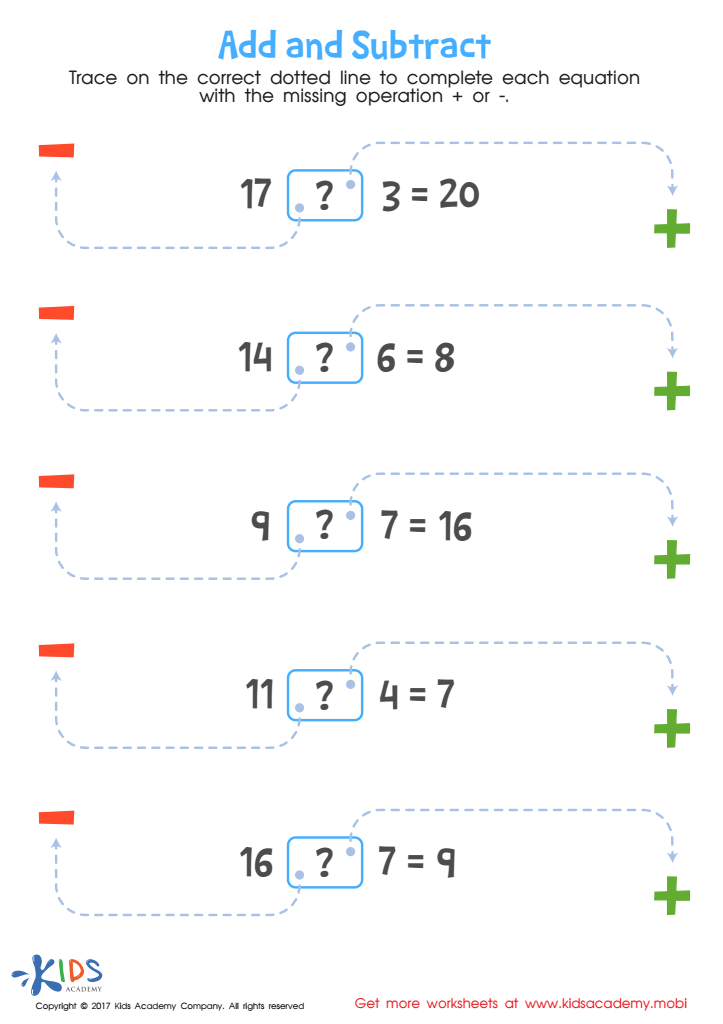

Add and Subtract Worksheet
Introduce your child to equations and advanced math concepts with this worksheet - designed to help them learn add and subtract up to 20. This logical reasoning exercise will help them gain a better understanding of math, preparing them for future success. Start early and watch them excel!
Add and Subtract Worksheet
Worksheet
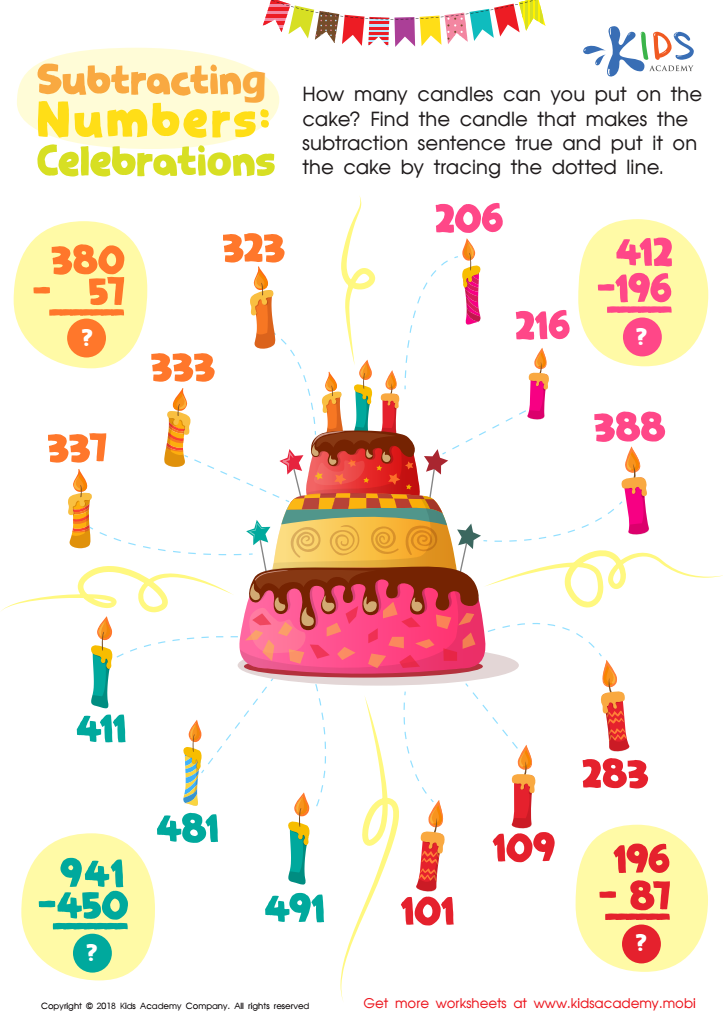

Subtracting Numbers: Celebrations Worksheet
Have your kids list their favorite birthday activities and treats. Then use this worksheet to help them figure out how many candles to put on the cake. Have them find the number that makes the subtraction sentence true, then trace the dotted line to add the candle to the cake. Help them complete the task and celebrate! 80 words
Subtracting Numbers: Celebrations Worksheet
Worksheet
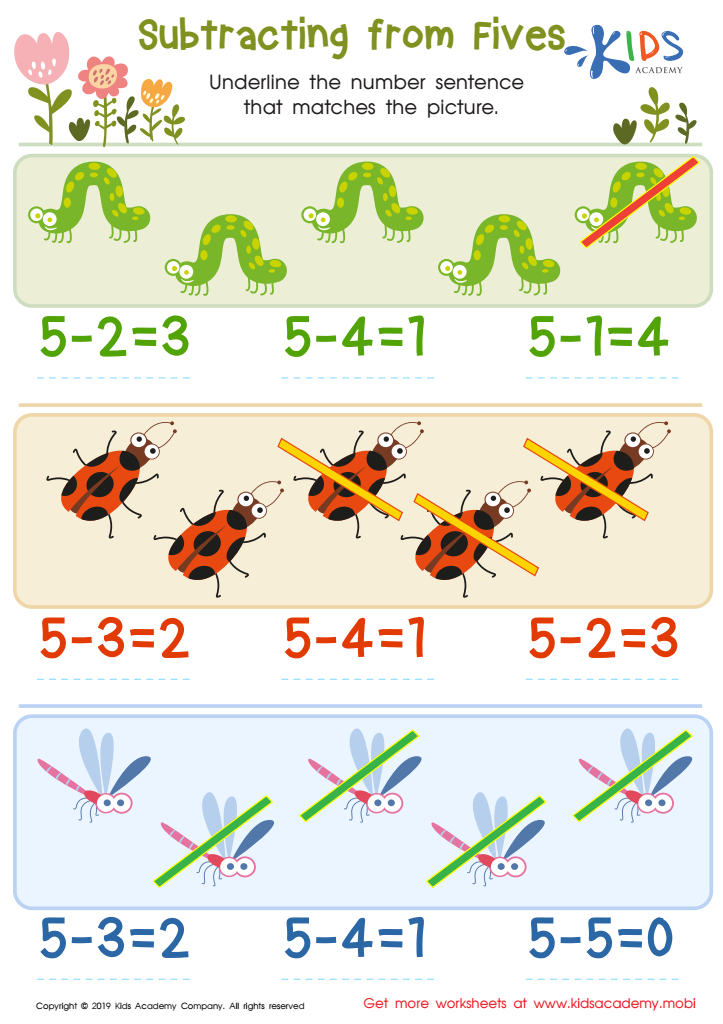

Subtracting From Fives Worksheet
Help your kids practice subtraction with this fun worksheet! Have them identify the insects, then solve the equations and find the matching number sentence. It's a great way to give them an edge in math and enjoy doing it!
Subtracting From Fives Worksheet
Worksheet
 Assign to the classroom
Assign to the classroom
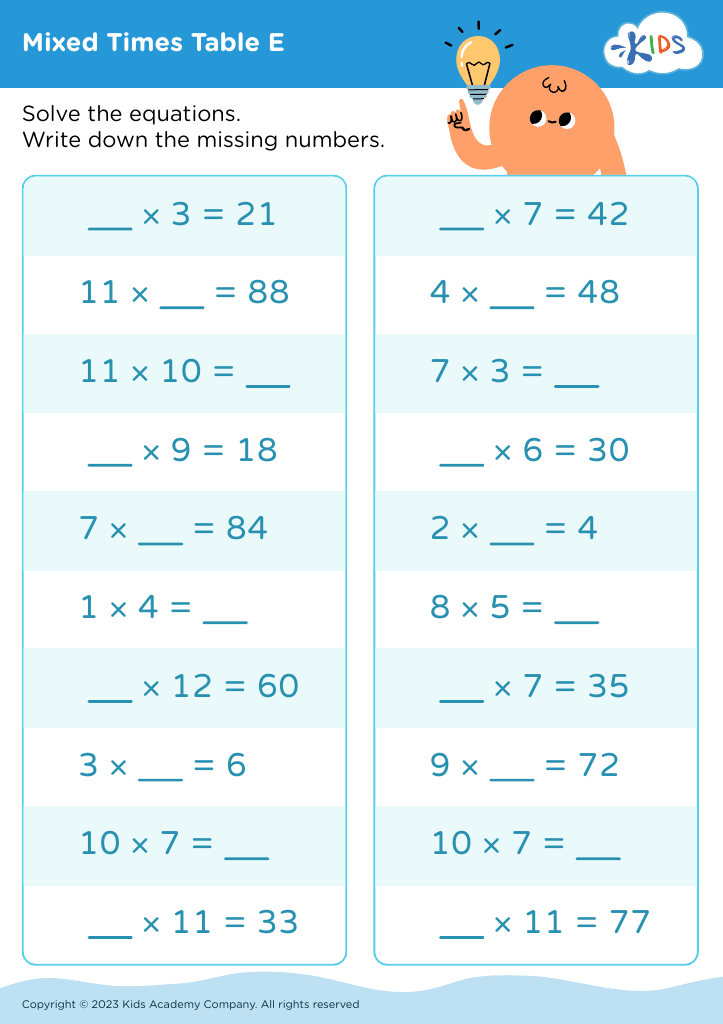
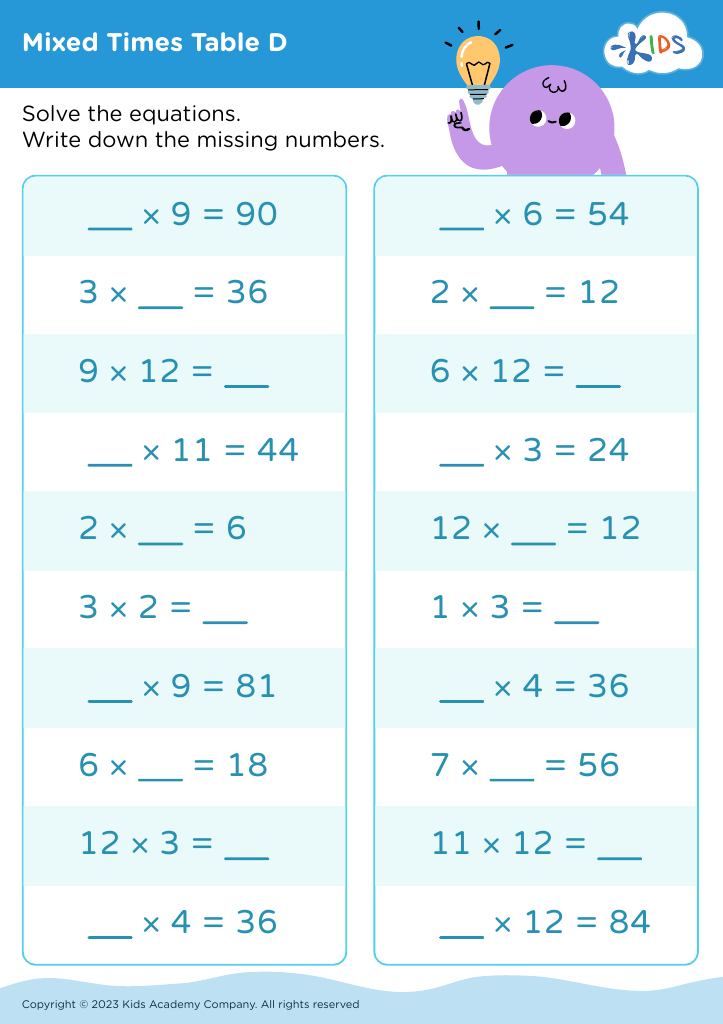
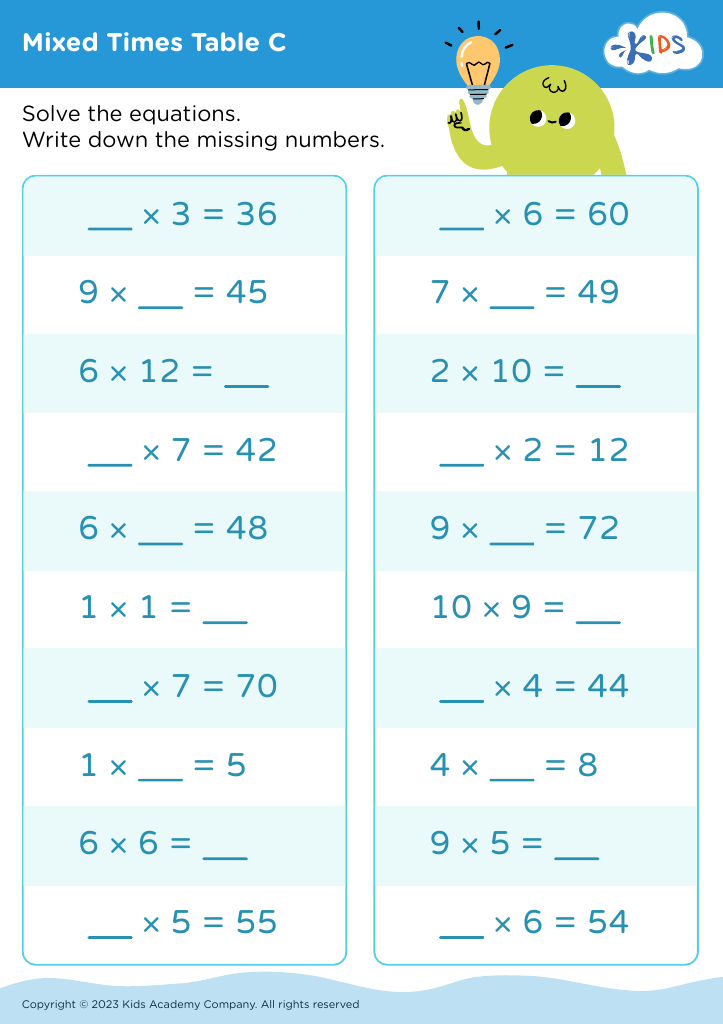



.jpg)
